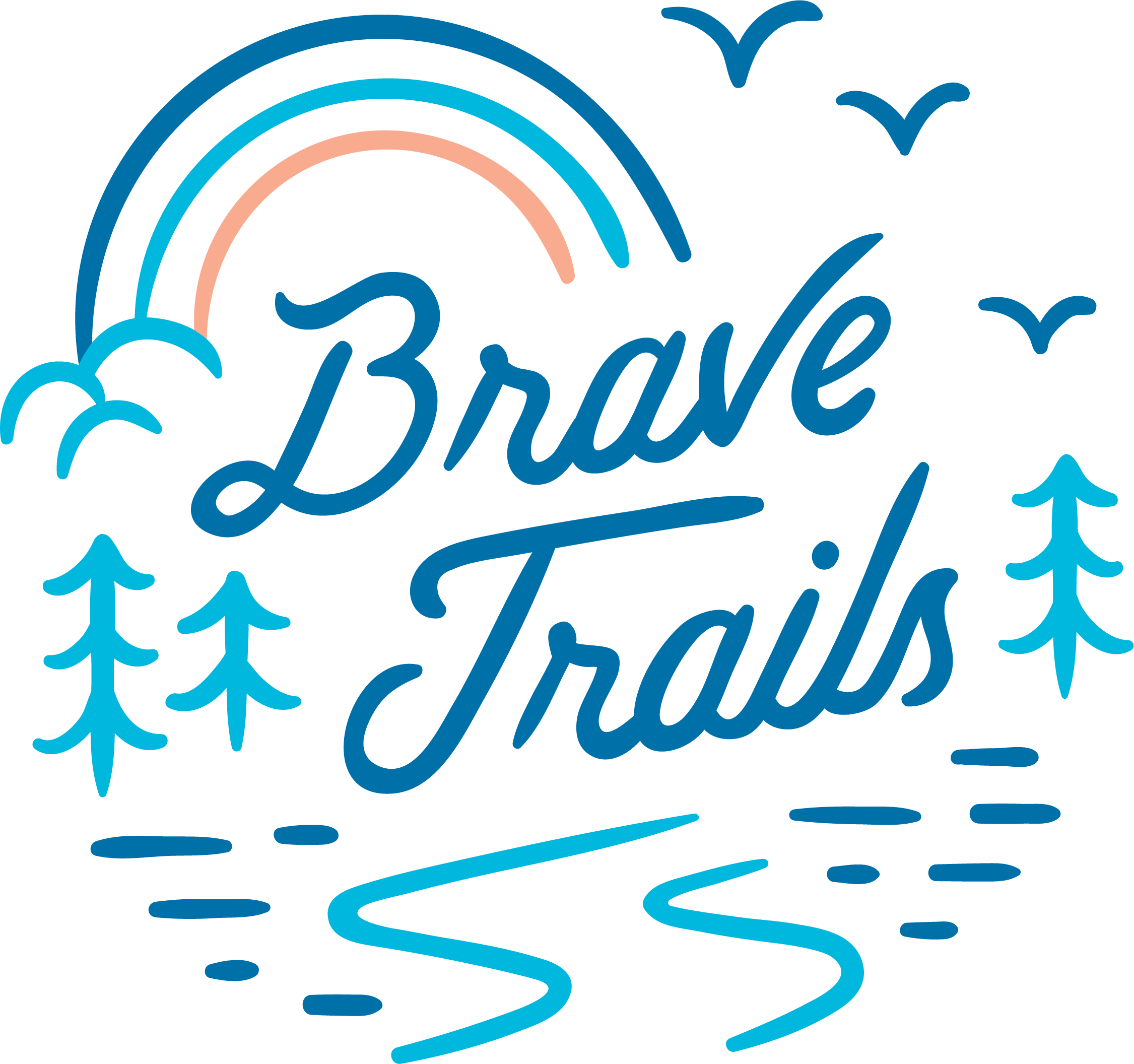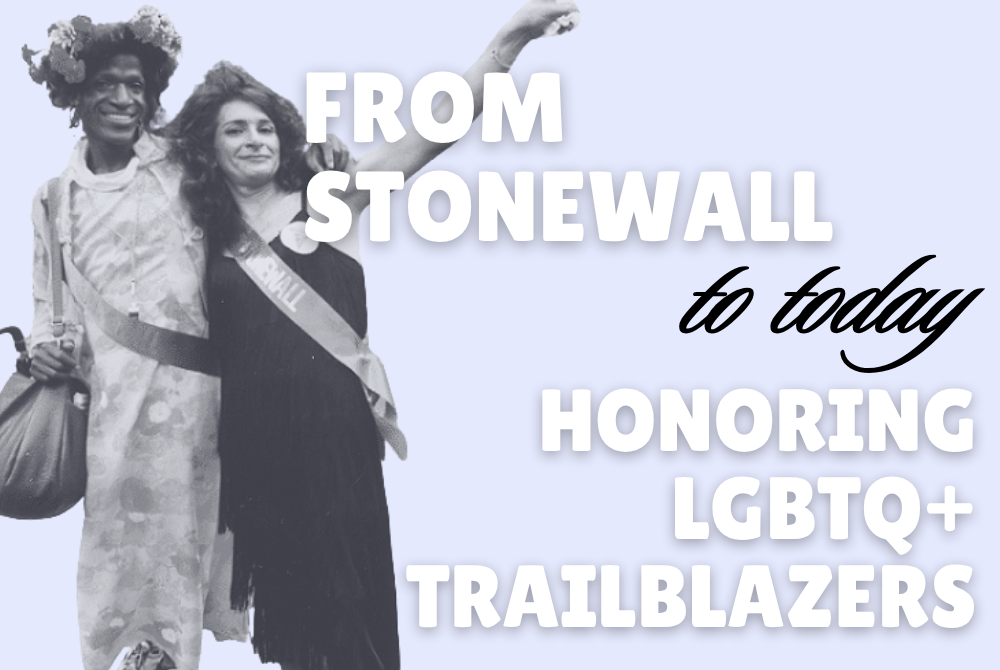From Stonewall to Today: Honoring 10 Trailblazers
Our history is one of resilience. For generations, queer and trans people have fought back against erasure and demanded the right to exist, to gather, and to thrive. Because of the vision and courage of those who came before us, our community has grown stronger and more vibrant.
This LGBTQ+ History Month, we’re honoring 10 activists and leaders whose bravery shaped the world we live in today. From the front lines of protest to the creation of life-saving community spaces, these trailblazers remind us that change is made possible when ordinary people choose to lead boldly and love loudly.
Marsha P. Johnson
(1945–1992)
A Black, trans feminine drag artist and community organizer, Marsha co-founded Street Transvestite Action Revolutionaries (STAR) with Sylvia Rivera to support unhoused queer and trans youth. She became one of the best-known figures associated with the 1969 Stonewall uprising and later advocated alongside AIDS activists for dignity and care. Her legacy centers trans women of color, poverty, and homelessness within the movement’s priorities.
Sylvia Rivera
(1951–2002)
A Latina trans trailblazer, Sylvia fought relentlessly to keep trans people—especially trans people of color and youth—at the heart of LGBTQ+ liberation. With Marsha P. Johnson, she co-founded STAR, opened shelter space, and pressed mainstream gay organizations to include trans rights. A veteran of Stonewall, she remains a touchstone for intersectional activism.
Bayard Rustin
(1912–1987)
A gay, Black activist and master strategist, Rustin organized the 1963 March on Washington and mentored Dr. Martin Luther King Jr. on nonviolence—often doing so from the background due to homophobia and political attacks. His life illustrates how queer people shaped the broader civil-rights canon despite attempts at erasure.
Pauli Murray
(1910–1985)
A Black, gender-nonconforming legal thinker, priest, and poet, Murray’s arguments at Howard Law helped lay intellectual groundwork later used in Brown v. Board of Education. They also helped found the National Organization for Women and spent a career insisting law recognize the dignity of those living at multiple margins. Murray’s life models brave, brilliant intersectional advocacy decades ahead of its time.
Lou Sullivan
(1951–1991)
A gay trans man, historian, and community builder, Sullivan founded FTM International and documented trans men’s lives through painstaking archives and writing. He separated sexual orientation from gender identity in public discourse and created peer networks that opened access to care. His diaries and organizing continue to shape trans health and history.
Frank Kameny
(1925–2011)
Dismissed from a federal astronomy job for being gay, Kameny took one of the first LGBTQ+ rights cases to the U.S. Supreme Court and organized some of the earliest White House pickets. He helped craft the unapologetic, public-facing politics of the 1960s and popularized the rallying cry “Gay is Good.” His relentless push changed federal policy toward LGBTQ+ employees.
Miss Major Griffin-Gracy
(born 1946)
A Black trans elder and former political prisoner, Miss Major has spent decades organizing for incarcerated trans people and those surviving street economies, HIV/AIDS, and state violence. As executive director of the Transgender, Gender-Variant & Intersex Justice Project (TGIJP), she centered the needs of those most targeted by prisons and policing. She remains a beloved mentor to generations of trans organizers.
Simon Nkoli
(1957–1998)
A gay, Black South African activist, Nkoli founded the Gay and Lesbian Organisation of the Witwatersrand (GLOW) and insisted LGBTQ+ freedom was inseparable from racial liberation. His advocacy helped secure the world’s first constitutional protection against sexuality-based discrimination in South Africa’s 1996 constitution. He linked queer rights to democracy at a pivotal historical moment.
Brenda Howard
(1946–2005)
A proudly bisexual organizer, Howard helped plan the first Christopher Street Liberation Day events in 1970 and is widely remembered as the “Mother of Pride.” She pioneered the idea of a week-long series of happenings around the anniversary of Stonewall—an approach that grew into Pride as we know it. Her work also pushed for bi visibility within LGBTQ+ spaces.
Barbara May Cameron
(1954–2002)
A Hunkpapa Lakota writer, photographer, and organizer, Cameron co-founded Gay American Indians—the first organization for queer Native people in the U.S.—and championed safer, more inclusive services in San Francisco. She insisted Native LGBTQ+ communities had distinct needs often ignored by both white LGBTQ+ groups and mainstream institutions. Her leadership helped seed the two-spirit revival that thrives today.
“History isn’t something you look back at and say it was inevitable, it happens because people make decisions that are sometimes very impulsive and of the moment, but those moments are cumulative realities.”











